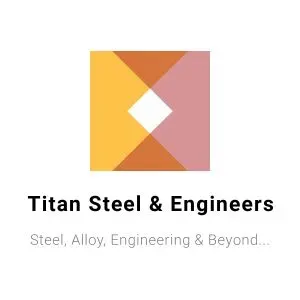Mastering Concrete and Masonry Tools for Every Project
Concrete and masonry work requires precision, skill, and, most importantly, the right tools. Whether you’re building a patio, repairing a walkway, or tackling large-scale construction, the tools you choose play a vital role in achieving a professional finish. With the right hand tools, power equipment, safety gear, and maintenance practices, even complex projects become more manageable and efficient.
This guide will walk you through the essential concrete and masonry tools you need for your projects, from trusted hand tools to advanced equipment. By the end, you’ll have a clear understanding of what it takes to excel in this craft.
Starting with the Basics
Before diving into a project, it’s important to understand the foundational tools every mason or concrete worker should have. These tools not only simplify tasks but also ensure accurate and high-quality results.
Essential Hand Tools for Precision Work
Hand tools are at the heart of masonry and concrete work. These tools allow you to shape, smooth, and detail surfaces with precision. Here’s a list of the primary hand tools every beginner and professional should have in their toolkit:
Trowels
Trowels are indispensable in concrete and masonry work. They come in various shapes and sizes, each serving a unique purpose.
- Pointing Trowel: Ideal for detailed work, such as filling in cracks and smaller sections.
- Brick Trowel: Used for spreading mortar evenly across surfaces.
- Margin Trowel: Great for patchwork and precise adjustments.
Floats
Floats are used to smooth and level concrete after it’s poured. They help create a uniform finish by removing any ridges or bumps.
- Magnesium Floats: Perfect for leveling surfaces before they fully set.
- Rubber Floats: Used for applying grout or creating finishes on masonry work.
Edgers and Groovers
These tools are essential for adding clean lines and professional edges to concrete.
- Edgers: Create smooth, rounded edges that prevent chipping.
- Groovers: Make straight grooves in concrete slabs to control cracking.
Power Tools for Efficiency and Speed
While hand tools are great for detailed work, power tools allow you to handle larger tasks more efficiently. They save time and effort, especially for big projects. Here are some of the most commonly used power tools in concrete and masonry work:
Concrete Mixers
Concrete mixers are essential for efficiently combining cement, sand, stone, and water. Whether you’re working on a small repair job or a massive construction project, a concrete mixer ensures a consistent mix, which is crucial for a durable end product.
- Portable Mixers are lightweight and ideal for small jobs.
- Stationary Mixers are designed for handling large quantities of concrete.
Saws
Cutting concrete and masonry materials requires precision and power, which is why specialized saws are a must.
- Masonry Saws are perfect for cutting brick, stone, or pavers cleanly.
- Circular Saws with Diamond Blades make cutting concrete slabs straightforward and precise.
Drills
Rotary hammers and impact drills are excellent for creating holes in concrete or masonry materials. They are especially useful for attaching anchors or hardware to structures.
Safety Gear is a Must
Concrete and masonry work can be physically demanding and hazardous without proper safety measures. Wearing the right gear minimizes risks and ensures a safer working environment. Here’s a checklist of the essential safety equipment:
- Gloves: Protect your hands from abrasions, blisters, and exposure to harmful chemicals in cement and mortar.
- Eye Protection: Safety goggles shield your eyes from dust, debris, and harmful particles while working with power tools or mixing concrete.
- Boots: Sturdy, slip-resistant boots provide foot protection and prevent accidents on the job site. Steel-toe boots are recommended for extra safety.
Having safety protocols in place isn’t just a good practice; it’s essential for avoiding workplace injuries.
Advanced Tools and Techniques
For more complex projects, advanced tools and techniques come into play. Laser levels, for instance, help ensure precision alignment over large areas, while power trowels are great for finishing large concrete surfaces quickly and smoothly.
Specialized tools like rebar benders cut and bend reinforcing steel for concrete slabs, providing the necessary structural support. These advanced tools might have a higher learning curve, but they dramatically increase productivity and the quality of your work.
Pro Tips for Maintenance and Care of Tools
Your tools are an investment, and maintaining them properly ensures they remain effective across projects. Here are some essential maintenance tips to extend the life of your concrete and masonry tools:
- Clean After Use: Wash tools thoroughly after each use to remove concrete and mortar residue. Dried concrete can weaken tool performance over time.
- Store Properly: Keep tools in a dry, secure location to prevent rust and corrosion.
- Sharpen and Oil Regularly: Hand tools like trowels and floats benefit from occasional sharpening to maintain their effectiveness. Lubricating moving parts of power tools prevents wear and tear.
- Inspect for Damage: Regularly check tools for any signs of wear or damage, and replace them as needed to ensure safety and efficiency.
By taking these steps, your tools will stay in excellent condition and ready to deliver the best results for years.
Perfecting Concrete and Masonry with the Right Tools
Mastering concrete and masonry begins with understanding the tools of the trade. From the precision of hand tools to the efficiency of power tools, having the right equipment allows you to tackle projects of any size with confidence. Proper safety gear ensures that you stay safe while working, and regular tool maintenance keeps your investments in optimal condition.
Whether you’re an experienced mason or a DIY enthusiast looking to take on a weekend project, equipping yourself with the right tools is the first step toward success. Start your next concrete or masonry project with this knowledge, and the results will exceed your expectations.
